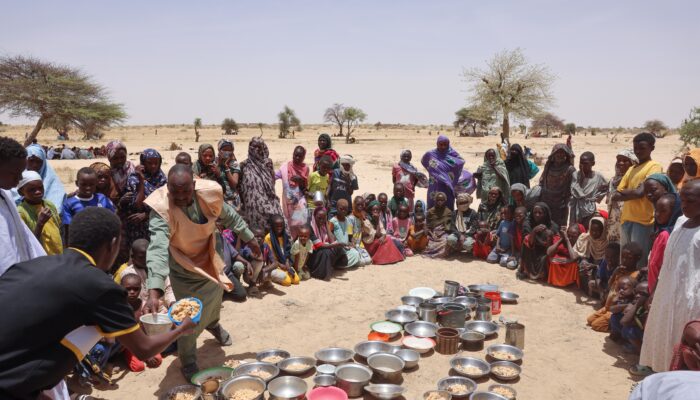Expert meeting
Sudan; opportunities and risks of directly supporting Emergency Response Rooms

Emergency Response Rooms - Proximity to Humanity
The humanitarian needs in Sudan are higher than ever, the country is witnessing the largest humanitarian crisis on record globally. Due to the ongoing civil war around 25 million people are in need, over 12 million people are displaced. Humanitarian access for international NGOs and UN agencies is severely impeded, leaving many areas without international aid.
Please read the report of this event here.
Text: Roeline Knottnerus
Illustrations: Sophie Struijk
Mutual aid groups, however, are present in those areas and are delivering life-saving aid through existing informal networks in their own communities. They are known as Emergency Response Rooms (ERRs): decentralized, informal, community-led networks operating in a high-risk environment. This session will explore opportunities and risks of supporting ERRs directly, bypassing much of the institutional humanitarian framework. This exchange serves to inform the Dutch humanitarian field on the opportunities and risks of directly supporting ERRs.
The strength of ERRs lies in their local knowledge, adaptability, community-based decision making, and limited bureaucratic delays. They developed a charter for decision-making and resource sharing built on the principles of accountability, participation, transparency, and equality. For donors, supporting these ERR’s through vetted intermediaries is often the only viable means to reach besieged or underserved communities. They are thus increasingly engaging with ERRs and are exploring avenues to fund them directly. This does, however, require a breach from the humanitarian systems as they have been institutionalized over the years. International humanitarian actors have spent decades refining their work — through compliance frameworks, accountability protocols, and rigid project standards. All with the aim to improve the quality of that work. The current situation in Sudan, however, requires innovative approaches, not bound by the frameworks that have been set up.
While, for instance, the IRC and the UN are experimenting with funding ERRs through their own mechanism, an inspiring direct-funding mechanism has been developed through the Mutual Aid Coalition Sudan to reach the informal networks, which a handful of foundations and iNGOs are already applying. In the Netherlands, Stichting Vluchteling has recently embarked on a pilot to support ERRs, which falls much outside its conventional ways of working. It also brings along risks that have been mapped. In the session, speakers from an ERR and from the Localization Coordination Council in Sudan, as well as from Stichting Vluchteling and other supporting agencies, will recount their experiences, their risk assessments and decision making.
- Duaa Tariq, Humanitarian/member of Emergency Response Rooms
- Alsanosi Adam, External communication Coordinator, Emergency Response Rooms, Localisation Coordination Council
- Renée van Hoof, Regional Program Officer East Africa, Stichting Vluchteling
- Justin Corbett, Programme Development, Resilo Fund; core team-member Local 2 Global Protection
This session is moderated by Maike Awater, Policy and Advocacy Advisor at Stichting Vluchteling.
Please register at kuno@kuno-platform.nl
– Pictures Proximity to Humanity –